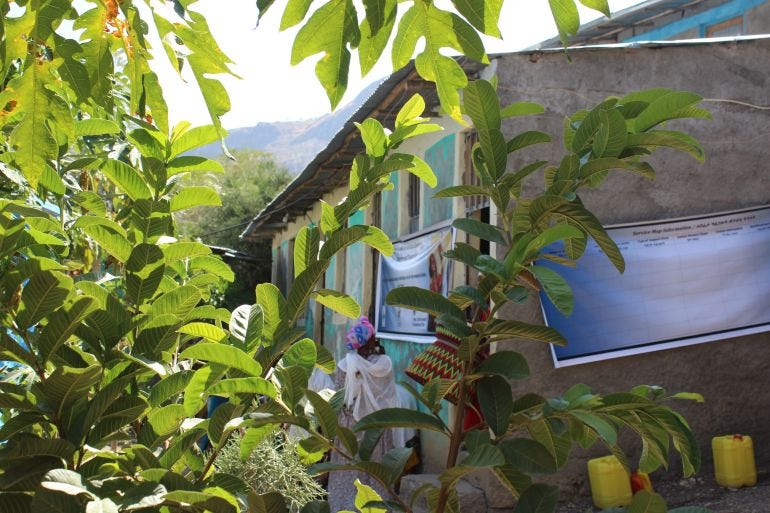Global Roundup: Listening Circles Help Tigray War Rape Victims, Mexico Shelter Employs Trans Women, Women Footballers Urge FIFA End Saudi Deal, Landmark Black Women Art Exhibit, India Female Director
Women gather at the HAL Centre in Bora, Tigray for psychosocial support [Gelila Getahun/Al Jazeera]
tw: rape, sexual violence
Tigray was under brutal siege by both the Ethiopian and Eritrean armies between November 2020 and November 2022. According to the African Union, more than 600,000 civilians were killed, and millions were displaced. At least 120,000 women and girls were raped during what regional health authorities say was a systematic campaign of sexual violence used as a weapon of war.
However, the number of sexual assaults is believed to be much higher as the stigma against victims is so strong that many women preferred not to report them for fear of being ostracised by their families.
Bezunesh (not her real name), a mother of eight whose husband was killed in 2021, never directly says she was raped, instead talking in general terms about the last few years.
After the attack, Bezunesh said, the trauma was so great that “some women couldn’t sleep, they felt like their head was about to explode”. Others, likely struggling from post-traumatic stress, “were getting lost, thinking they were going to the church or to visit a friend and suddenly finding themselves in another place”.
“Myself, I was extremely stressed, quarrelling with my children, people and even animals,” Bezunesh added.
A few months after the Ethiopian army ransacked the village, it was the turn of Eritrean soldiers.
A small group of women in and outside Tigray, including a nurse, a social worker, a medical student, an aid worker and the head of the Daughters of Charity, a well-respected charity with deep roots in the communities, had heard of HAL and thought that this method might help Tigrayan women as well.
One of the signs of sexual violence is a feeling of shame and guilt. But if women can manage to talk and see that the shame belongs to the persecutor, it really helps them. The perpetrator wanted to dehumanise them, but the group helps them to reclaim their humanity, to feel understood, validated and respected. -Adelite Mukamana, Rwandan genocide survivor and psychologist
The Daughters of Charity has prepared a safe place for the women in a fenced compound. The HAL rooms are made to look like a typical living room with mattresses, chairs and sets for the traditional coffee ceremony.
I attended the HAL circle sessions and this really changed me. It is what gave me strength and hope, The sessions helped first because of the listening, sharing and knowing we were not alone…The changes are very visible – in the ways we interact with our family, how we handle our children properly. It is even visible in our walking. We don’t get lost any more, and we walk more confidently. We also like these sessions because they are like our coffee ceremonies, and there is music if we want, and often we end a session by dancing. -Bezunesh
Keep reading with a 7-day free trial
Subscribe to FEMINIST GIANT to keep reading this post and get 7 days of free access to the full post archives.


